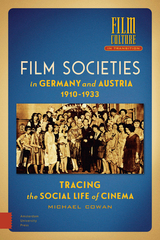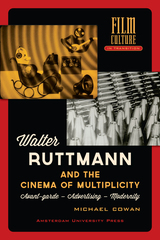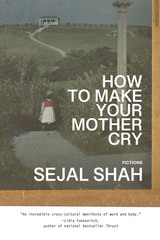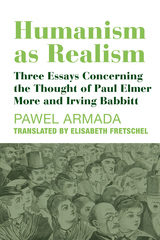3 books about Cowan, Michael

Film Societies in Germany and Austria 1910-1933
Tracing the Social Life of Cinema
Michael Cowan
Amsterdam University Press, 2023
This study traces the evolution of early film societies in Germany and Austria, from the emergence of mass movie theaters in the 1910s to the turbulent years of the late Weimar Republic. Examining a diverse array of groups, it approaches film societies as formations designed to assimilate and influence a new medium: a project emerging from the world of amateur science before taking new directions into industry, art and politics. Through an interdisciplinary approach—in dialogue with social history, print history and media archaeology—it also transforms our theoretical understanding of what a film society was and how it operated. Far from representing a mere collection of pre-formed cinephiles, film societies were, according to the book’s central argument, productive social formations, which taught people how to nurture their passion for the movies, how to engage with cinema, and how to interact with each other. Ultimately, the study argues that examining film societies can help to reveal the diffuse agency by which generative ideas of cinema take shape.
[more]

Technology's Pulse
Essays on Rhythm in German Modernism
Michael Cowan
University of London Press, 2011
, in particular, witnessed numerous efforts to define, discipline or 'liberate' temporal experience. Within this broader framework of thinking about temporality, 'rhythm' came to form the object of an intense and widespread preoccupation. Rhythmical research played a central role not only in the reconceptualisation of human physiology and labour in the late nineteenth century, but also in the emergence of a new leisure culture in the early twentieth. The book traces the ways in which notions of 'rhythm' were mobilised both to conceptualise modernity (narrate its origins and prescribe its directions) and, in particular, to forge a new understanding of temporal media that came to mark the mass-mediated experience of the 1920s: a conception of artistic media as mediators between the organic and the rational, the time of the body and that of the machine. Michael Cowan is Associate Professor of German and World Cinemas at McGill University. He is the author of Cult of the Will: Nervousness and German Modernity (2008), as well as several articles and collections on German literature, film, media and cultural history.
[more]

Walter Ruttmann and the Cinema of Multiplicity
Avant-Garde Film - Advertising - Modernity
Michael Cowan
Amsterdam University Press, 2014
A key figure in early avant-garde cinema, Walter Ruttmann was a pioneer of experimental animation and the creative force behind one of the silent era's most celebrated montage films, Berlin: Symphony of a Great City. Yet even as he was making experimental films, Ruttmann had a day job. He worked regularly in advertising -and he would go on to make industrial films, medical films, and even Nazi propaganda films. Michael Cowan offers here the first study of Ruttmann in English, not only shedding light on his commercial, industrial, and propaganda work, but also rethinking his significance in light of recent transformations in film studies. Cowan brilliantly teases out the linkages between the avant-garde and industrial society in the early twentieth century, showing how Ruttmann's films incorporated and enacted strategies for managing the multiplicities of mass society.This book has won the Willy Haas Award 2014 for its outstanding contribution to the study of German cinema.
[more]
READERS
Browse our collection.
PUBLISHERS
See BiblioVault's publisher services.
STUDENT SERVICES
Files for college accessibility offices.
UChicago Accessibility Resources
home | accessibility | search | about | contact us
BiblioVault ® 2001 - 2024
The University of Chicago Press









